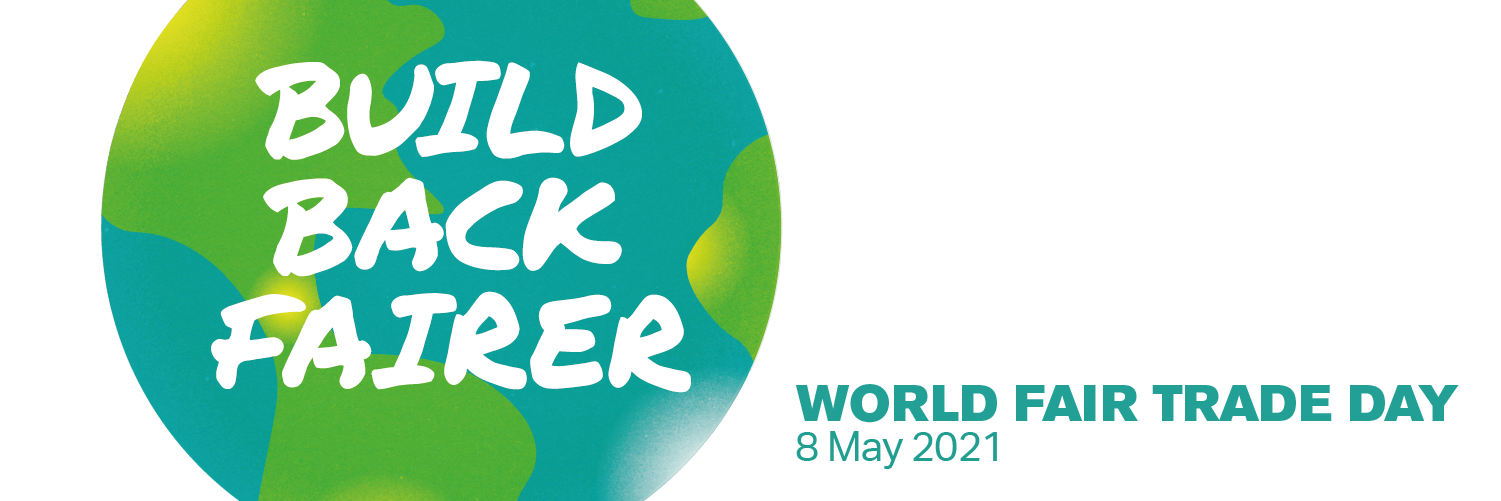Washington, DC (USA), 05/08/2021, Sr. Claudia Ruvalcaba Cano.- “Build-back-fairer” is the theme of the World Fair Trade Day 2021, which takes place every year on the second Saturday of May since 2004.

Our modern society has placed the economy first and it seems that all other aspects of our lives are around it; however, we all know that something is wrong with how trade works. Our trade structures and practices benefit the most powerful. Meanwhile small farmers, artisans and workers are more vulnerable to suffer exploitation and struggle to get what they need in order to live. Last year things got worse when Covid-19 arrived in our world, they really suffered the most.
At the present, we hear everywhere that it is important to come back to “normality” in order to reactive the economy, but the reality is that we cannot return to businesses as usual. The Covit-19 crisis has shown us that the destruction of nature, deforestation, climate crisis and health crisis are all interrelated, and they share the exploitation of people and the planet as a common cause. Therefore, a transformation is needed.
The World Fair Trade Day was created in 2004 by the World Fair Trade Organization (WFTO) which is a global association of 324 organizations in over 70 countries. Its main goal is to promote human values that help fight against poverty and exploitation, climate change and the economic crisis that has the greatest impact on the world’s most vulnerable populations.[1]
This year through the theme: “Build back fairer”, the WFTO is inviting us to step up and to unite strengths to face these problems together. Recovering from the pandemic gives the world a chance not just to build better but build back fairer. We cannot simply go back to the old normal. The old normal left millions behind and was destroying our planet. We need a transformation at different levels if we truly want to build a fair, just, and sustainable tomorrow.
This transformation should take into consideration: fair trade public policies, reduction of inequalities, economic and agricultural model that respect the planetary boundaries, strong voice for small farmers, artisans, and workers. Also, it gives some recommendations to governments:
- Protect: put the health and livelihoods of farmers, artisans, and workers first.
- Restart: stimulus packages should be conditioned on human rights due diligence and climate commitments by companies.
- Redesign: change the rules of the game so that businesses put people and the planet before profit.
- Fair sharing of Resources: encourage sustainable consumption through taxation and sustainable public procurement.[2]
The WFTO is challenging us to act now, this is the time… we cannot wait anymore. As we face the pandemic, we have the courage and common strength, to work together and to cooperate to flatten the contagion curve. In the same way, we can also unite to flatten the inequality curves. It’s time to rethink our economy. It’s the time “to turn the world upside down”[3] as Jesus did. He did not want to replace those presently in power with others who were not in power. He was looking at something more radical than that. He took the values of his time and turned them on their heads. He looked for a social change that called for a deep spiritual conversion.
Only through spiritual conversion we will be among those whom Jesus called blessed because they are poor and fortunate for their generosity to share with others. Only when we share, we live in the kingdom of God, where everything belongs to all.


 EN
EN  ES
ES  FR
FR 



